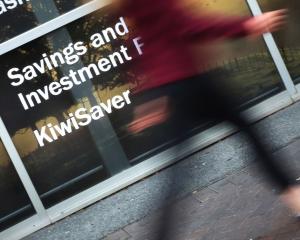
Meanwhile, employer and government contributions will be extended to 16- and 17-year-olds, who are currently employed.
The government says these changes make the savings scheme more "sustainable" and have the intention of increasing the money New Zealanders will have at age 65, or to buy new homes.
What's the new default rate?
This will rise from the current rate of 3 percent of salary and wages to 4 percent in two stages. From April 1, 2026, the rate will shift to 3.5 percent, before increasing again on April 1, 2028 to 4 percent. Employees will be able to temporarily "opt down" to the current rate of 3 percent - and be matched by their employer at that rate. The government said the changes are being phased in to help workers and employers plan ahead.
 Photo: Getty
How much less will the government give?
Photo: Getty
How much less will the government give?

The government will be halving its annual contribution. Currently the government will contribute 50 cents per dollar of contribution by an employee, up to a maximum of $521.43 a year. From July 1, 2025 that will be halved to 25 cents per dollar, up to a new maximum of $260.72.
For a KiwiSaver member to receive that full contribution, they will still need to contribute a minimum of $1,042.86 a year. The government said this is to make sure the scheme's costs to the taxpayer "remain sustainable".
How old can I be to access the government contribution?
The government contribution will be extended to include 16- and 17-year-olds from July 1, 2025, and they will be eligible for mandatory employer contributions as well, from April 1, 2026. The age for auto-enrolment will remain at 18.
Will it be means tested?
Those enrolled in the scheme with an income of more than $180,000 will no longer receive the government contribution. Eligibility for this will be tested according to one of the last two tax years based on the member's income, once their final tax return is finalised.
None of the changes will affect this year's government contribution.
Finance Minister Nicola Willis explained this would "encourage Kiwis to save more for their first home and retirement" while making the scheme "more fiscally sustainable." Extending the government contribution and employer matching to younger members would encourage first-time employees to adopt the "savings habit".
"Putting these changes together, the KiwiSaver balances of employees contributing at the new 4 per cent default rate will grow faster than they do at the current 3 percent default rate," Willis said.
She said the increase in KiwiSaver balances will also grow the pool of funds available for investment in New Zealand.
There are more than three million KiwiSaver members with a total of $111.8 billion in funds under management. There's an average balance of more than thirty thousand dollars per member.













